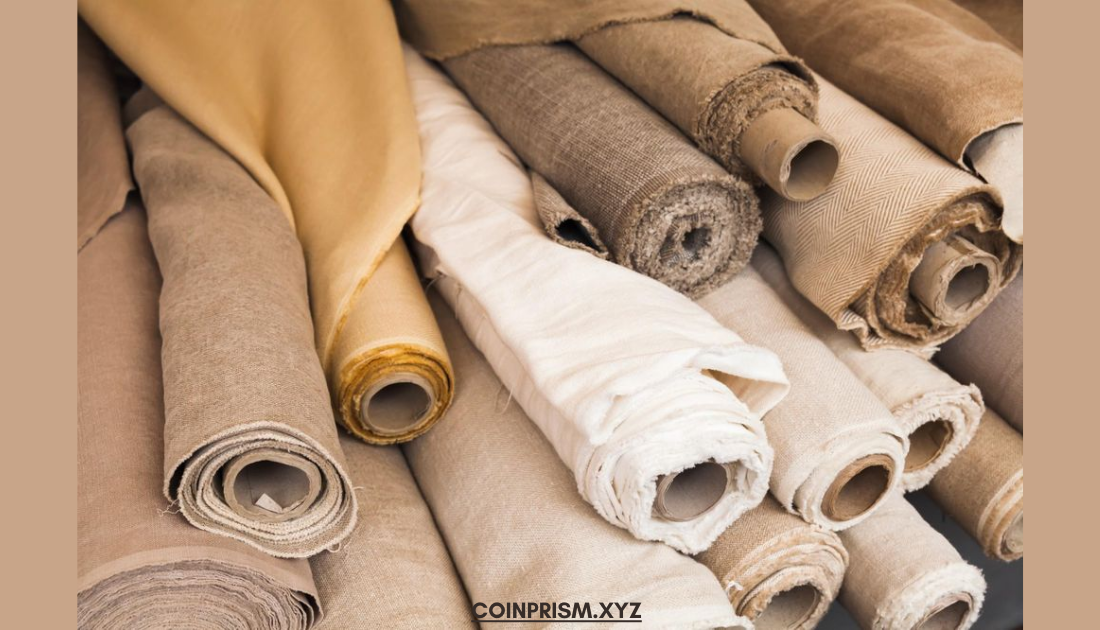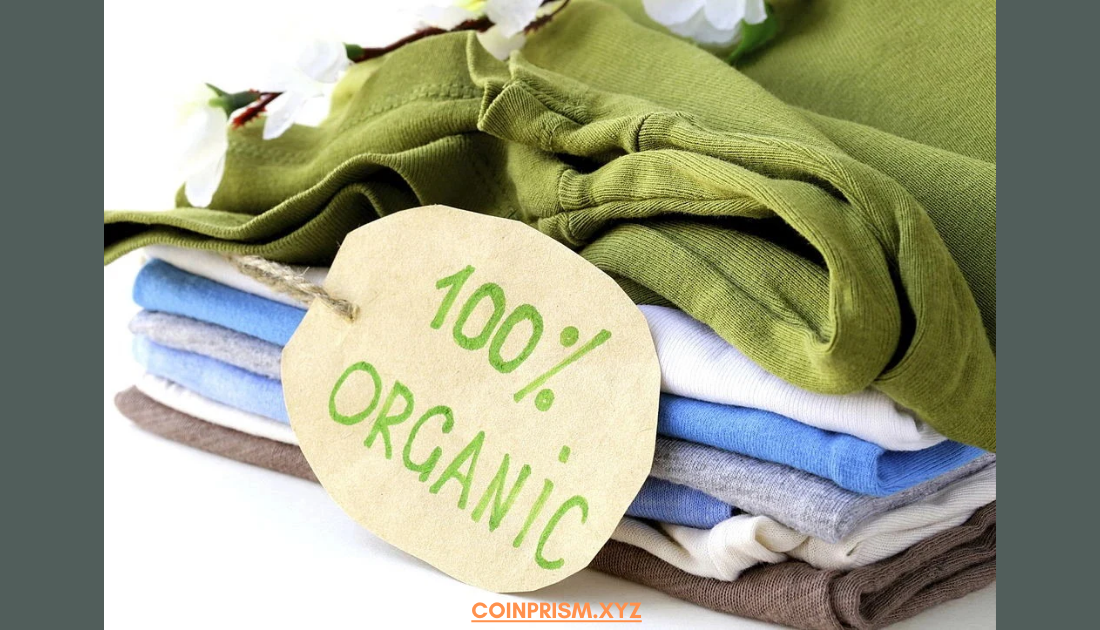Blog
The Benefits of Organic Cotton Fabric: A Guide to Sustainable and Comfortable Clothing
As consumers become more aware of environmental impacts, organic cotton fabric has emerged as a popular choice for sustainable fashion. Unlike conventional cotton, organic cotton is grown without harmful pesticides or synthetic fertilizers, making it a healthier option for both people and the planet. This article explores the unique benefits of organic cotton fabric and why it’s a valuable addition to any wardrobe.
What Is Organic Cotton Fabric?
Organic cotton fabric is made from cotton grown using methods and materials that have minimal impact on the environment. This type of cotton is cultivated without synthetic chemicals, relying on organic farming practices like crop rotation, composting, and natural pest control. These methods promote biodiversity and protect soil health, making organic cotton a more sustainable alternative to traditional cotton.
Organic cotton fabric is also processed without toxic dyes or bleaches, resulting in a product that’s safer for consumers and the environment. From clothing and bedding to towels and home textiles, organic cotton is increasingly being used in a variety of products.
Key Benefits of Organic Cotton Fabric
1. Eco-Friendly Production
One of the most significant benefits of organic cotton fabric is its eco-friendly production process. Traditional cotton farming requires large amounts of water, pesticides, and synthetic fertilizers, all of which can harm the environment. In contrast, organic cotton uses natural farming practices that conserve water and eliminate the need for harmful chemicals. This approach reduces pollution and supports healthier ecosystems.
2. Reduced Chemical Exposure
Organic cotton fabric is free from the toxic chemicals used in conventional cotton production. During traditional farming, pesticides can linger on the cotton, potentially causing skin irritation or allergic reactions. With organic cotton, you can feel confident knowing the fabric is gentle on the skin, making it an ideal choice for people with sensitive skin or allergies.
3. Higher Soil Quality
Organic cotton farming helps maintain healthy soil. By using techniques like crop rotation and composting, organic farmers improve soil fertility and prevent erosion. Healthier soil can retain water more effectively, which reduces the amount of water needed for crop growth. This soil-friendly approach not only benefits cotton plants but also supports sustainable farming practices.
4. Less Water Consumption
Water conservation is another advantage of organic cotton. Conventional cotton farming is known for its high water usage, often putting a strain on local water resources. In comparison, organic cotton farming methods typically use less water, as the soil retains moisture better. This water efficiency makes organic cotton an excellent choice for environmentally conscious consumers.
5. Support for Fair Labor Practices
Many organic cotton farms adhere to fair labor practices, ensuring that workers are treated ethically. By choosing organic cotton fabric, you’re often supporting farmers who work under fair and safe conditions. This ethical aspect adds to the appeal of organic cotton, aligning with the values of those who prioritize both environmental and social responsibility.
Reasons to Choose Organic Cotton Fabric
Better for Your Health
Since organic cotton fabric is free from harmful chemicals, it’s a safer option for your health. Unlike conventional cotton, which may contain residues of pesticides or synthetic dyes, organic cotton provides a natural alternative that’s kind to your skin. It’s particularly beneficial for babies and individuals with sensitive skin, as it reduces the risk of irritation or allergies.
Long-Lasting Quality
Organic cotton fabric is known for its durability. The absence of harsh chemicals during processing helps preserve the natural strength of the cotton fibers, resulting in long-lasting garments and textiles. Over time, this durability means fewer replacements and less waste, adding to the overall sustainability of organic cotton.
Versatility and Comfort
Organic cotton fabric is soft, breathable, and versatile, making it suitable for various uses. From T-shirts and jeans to bed linens and towels, organic cotton offers comfort across many applications. Its natural breathability helps regulate body temperature, ensuring comfort in both warm and cool climates.

How Organic Cotton Fabric Is Made: A Step-by-Step Overview
Creating organic cotton fabric involves several eco-friendly processes. Here’s a look at the journey from farm to finished product:
- Sowing and Cultivating the Cotton
Organic cotton seeds are sown in soil free from synthetic chemicals. Farmers use organic methods, such as natural fertilizers and crop rotation, to nurture the plants. - Natural Pest Control
Organic farmers rely on natural pest control methods instead of chemical pesticides. Techniques like companion planting and introducing beneficial insects help protect crops without harming the environment. - Harvesting the Cotton
Once the cotton plants mature, they are harvested by hand or using eco-friendly machinery. This careful harvesting process helps preserve the quality of the cotton fibers. - Processing and Cleaning the Fibers
After harvesting, the cotton is cleaned and processed without the use of toxic chemicals. Natural washing and spinning methods are used to produce high-quality, organic cotton yarn. - Dyeing and Finishing
Organic cotton fabric is typically dyed using non-toxic, eco-friendly dyes. This final step results in a finished product that is free from harmful chemicals and safe for consumers.
Real-Life Applications of Organic Cotton Fabric
Clothing
Organic cotton is widely used in clothing, from everyday basics like T-shirts and jeans to high-end fashion. Its softness and breathability make it a popular choice for consumers who prioritize comfort and sustainability.
Home Textiles
Organic cotton fabric is also a great option for home textiles. Bedding, towels, and curtains made from organic cotton are not only comfortable but also add an eco-friendly touch to your home. These products are often free from synthetic dyes, making them safe for all family members.
Baby Products
Organic cotton is frequently used in baby products, including clothing, blankets, and diapers. Since babies have sensitive skin, organic cotton is an ideal choice as it reduces the risk of irritation. Parents can feel good about choosing a natural, gentle material for their little ones.
Tips for Caring for Organic Cotton Fabric
To maximize the lifespan of your organic cotton fabric, follow these care tips:
- Wash in Cold Water: Use cold water to wash organic cotton items, as hot water can cause shrinking. Cold water washing also helps conserve energy.
- Use Gentle Detergents: Choose a mild, eco-friendly detergent that won’t compromise the integrity of the fabric.
- Air Dry When Possible: Air drying reduces wear and tear on the fabric and helps preserve its natural quality. If you must use a dryer, select a low-heat setting.
- Avoid Bleach: Organic cotton does not contain harsh chemicals, so avoid bleach, which can damage the fibers. Instead, use a natural stain remover if needed.
Comparing Organic Cotton Fabric to Conventional Cotton
While conventional cotton remains popular, organic cotton fabric offers numerous benefits that make it the more sustainable option. The reduced chemical use, lower water consumption, and improved soil health are key advantages of organic cotton. Although it may have a higher upfront cost, the durability and environmental benefits of organic cotton make it a valuable long-term investment.
Final Thoughts: Why You Should Buy Organic Cotton Fabric
Choosing organic cotton fabric is more than a fashion statement—it’s a commitment to environmental and social responsibility. By supporting organic cotton, you’re promoting sustainable farming practices, reducing chemical exposure, and contributing to a healthier planet. Whether you’re shopping for clothing, home textiles, or baby products, organic cotton provides a natural and eco-friendly alternative.
Investing in organic cotton fabric is a step toward a more sustainable lifestyle. Embrace the comfort, durability, and environmental benefits that come with organic cotton, and see the difference it can make in your daily life.

